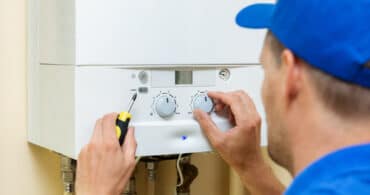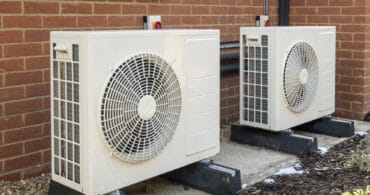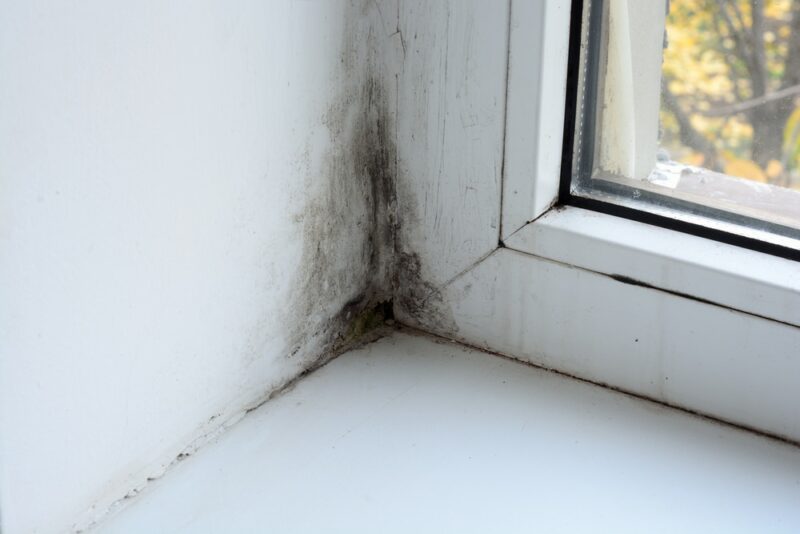Condensation, Mildew & Mould: Landlord or Tenant Responsibility?
Mould, damp, mildew and condensation are a fairly common problem in rental properties, often discovered at the end of a tenancy. If you find any of these issues in your property, you may be wondering whether you can pass the costs for resolving them on to the tenant. Whether or not you can depends on various factors.
Mould, damp, mildew and condensation are a fairly common problem in rental properties, often discovered at the end of a tenancy. If you find any of these issues in your property, you may be wondering whether you can pass the costs for resolving them on to the tenant. Whether or not you can depends on various factors.
What are the main causes of mould and mildew in a rental property?
Damp can be down to numerous issues, some caused by problems inside the property, others emanating from outside. Things like missing roof tiles, blocked damp courses, leaks, poorly pointed brickwork, broken guttering or dripping overflows are typical culprits. Anything that allows water into the property can cause staining, which turns into mildew or mould. Excessive condensation within the property can also have the same effect.
Whether any of these causes of damp are down to tenant negligence is the matter that is up for discussion. It is impossible to avoid the fact that there will be moisture in the air. But it is excess moisture that causes issues. When the air gets cold, the moisture forms droplets on windows, window frames and walls. Any place where the air doesn’t flow properly. Where droplets continue to form over time, mould can start to grow.
Is mould a tenant’s responsibility? Or is it down to the landlord? How to work out who is responsible for mould in a rental property.
In determining who is responsible for mould, landlord or tenant, there are various factors to take into consideration.
Age and style of the property
Older properties tend to be more susceptible to condensation and mould. The type of windows can influence the degree of the problem too. Timber windows that have been replaced with UPVC alternatives can sometimes lead to condensation, because they seal a property, leaving inside moisture nowhere to escape. If the windows are left closed all the time, and have not been fitted with vents, or the vents are closed, then this is going to exacerbate the problem.
You should expect higher levels of damp in older properties. If your windows don’t open, or they are not fitted with vents, then more often than not, it will be your responsibility to resolve any resulting damp or mould issues. If vents have been left closed or blocked by tenants, or they have failed to open windows when using a tumble dryer, you may be able to apportion responsibility and claim a fair sum for resolving the problem.
Air vents and extractors
If there is no window in a bathroom, it should be fitted with an extractor fan. You’ll want to make sure the fan is used, so it’s important to connect it to the light switch. All extractor fans in a rental property should be regularly checked to ensure they are working properly. This is down to you as the landlord.
If extractors re not efficiently removing moisture, then you won’t be able to claim from the tenant for any mould in the bathroom or kitchen. Similarly, if they are not fitted where they should be, or there are no vents, then this is your responsibility.
However, if extractors are fitted and working properly, but they’re not being used by the tenant, then you can hold them responsible for any resulting mould growth. The same goes for if they’ve blocked any vents.
Regular interim inspections of your property will give you the chance to check whether everything is as it should be, and will allow you to detect any mould growth early on so you can deal with it before it turns into a major issue.
Drying washing
Drying washing using a tumble dryer, or by hanging it up in the home, can both lead to damp issues if steps aren’t taken to reduce the resulting moisture in the air.
Tumble dryers used without proper ventilation will over time lead to mould growth in the home. If you haven’t supplied a vent hose to use with any tumble dryer you have supplied, then you can reasonably expect tenants to use their common sense and open a window when the machine is in use.
If a tenant fails to ventilate the property when using the dryer and mould has started to grow near the machine, you can usually call tenant negligence.
Hanging damp washing to dry over radiators or heaters will release moisture into the air. If you find bubbling paint or mould stains around radiators, it is likely the tenant has been drying their washing on them. This can be classed as negligence, although it is important to make sure your tenants know the consequences of drying washing in this way.
Unchecked leaks
Leaks that are left over time can result in the growth of mould, but can also have more serious consequences, including collapsed ceilings and rotting floors. You’ll be responsible for repairing any leaks, but it is down to the tenant to report them to you as soon as they spot them. If they don’t, then you can consider them negligent and responsible for covering the cost of any works required to resolve the issue, although you should make it clear that they have a duty to report leaks immediately.
Steps you can take to minimise the risk of damp in your rental property
If your property is naturally susceptible to condensation, it might be worth investing in a dehumidifier to draw the moisture out of the air. Regular interim inspections will allow you to spot any developing issues and deal with them sooner rather than later.
Maintenance is also vital. Blocked or broken guttering and down pipes, missing roof tiles, damaged brick pointing and overgrown climbing plants can lead to all sorts of issues, and it is down to the landlord to keep these in check.
If there is clear evidence that mould or mildew growth is down to tenant negligence rather than fair wear and tear, and you can prove that you have taken steps to reduce the risk of potential damage by providing ample advice to tenants and carrying out regular maintenance, then you should be able to make a claim for the costs involved in making good the problem.
Homes2let offers a property management service that reduces the landlord burden, with an added benefit…
As a landlord, you have enough to deal with without having deal with deposit claims. So why not hand over to a property management service, but one with a clear added benefit?
The homes2let guaranteed rent scheme guarantees rental payments, even when the property is untenanted, as well as taking all the hassle of property management off your shoulders too.
Interested to discover more? You are welcome to get in touch with our expert team to discover how we can make your life as a landlord more of a breeze.
Related Insights

Boiler Breakdown Cover: A Guide for Landlords
One of the most costly and time consuming issues for any landlord has to be dealing with boiler callouts. One way of avoiding surprise costs and all the hassle associated with boiler repairs is to take out landlord boiler breakdown cover. Here’s how it works, what it includes, what it doesn’t include, and what to consider when arranging cover.

Heat Source Pump Grants Coming Soon for Landlords
As confirmed in the recent Autumn 2021 Budget, landlords have been included in the government’s heat source pump grant scheme, which will provide access to grants of £5,000 to help replace gas boilers with low-carbon air or ground source heat pumps from April 2022.

Converting a Residential Mortgage to Buy-to-Let: What You Need to Know
If you currently have a regular residential mortgage on your home, are moving out and want to let the existing one out, then you may be wondering if changing to a buy to let mortgage is possible. The answer is there are two main options. One is to obtain consent from your current lender to let your property out, or re-mortgage to a buy-to-let loan.







